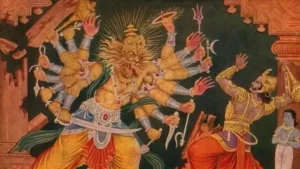India has a rich and ancient history, filled with grand monuments, lost cities and hidden treasures. Many historians and explorers have studied India’s past, but one person played a very important role in discovering and preserving its heritage. This person helped in finding ancient sites, studying old inscriptions and protecting historical monuments. Because of these great efforts, he is known as the pioneer of Indian archaeology.
Father of Indian Archaeology
Major General Sir Alexander Cunningham is known as the Father of Indian Archaeology. He was a British Army engineer who developed a strong interest in India’s ancient history and monuments. In 1861, he founded the Archaeological Survey of India (ASI) to study and protect old sites. His efforts helped uncover and preserve many ancient Indian cities, temples, and artifacts, making him a key figure in India’s archaeological heritage.
Early Life and Education of Sir Alexander Cunningham
Major Alexander Cunningham was born on 23 January 1814 in London. His father was the Scottish poet Allan Cunningham. He studied at Christ’s Hospital, London and later trained at Addiscombe Seminary to join the British Army. His interest in Indian history grew after he came to India in 1833 and met James Prinsep, an expert in ancient Indian coins and scripts.
Military Career of Cunningham
Cunningham joined the Bengal Engineers at the age of 19. He worked in different parts of India, building bridges and roads. He also participated in important battles like the Battle of Punniar (1843) and the Battle of Sobraon (1846). In 1856, he was appointed as the chief engineer of Burma. He retired from the army in 1861, reaching the rank of Major General.
Interest in Archaeology
Even while working in the army, Cunningham was passionate about archaeology. He studied ancient Indian temples, stupas and inscriptions. His first excavation was at Sarnath in 1837. He also excavated at Sanchi, Sankissa and Bharhut, uncovering important Buddhist monuments.
Establishment of the Archaeological Survey of India
In 1861, Lord Canning, the Viceroy of India, appointed Cunningham as the first Archaeological Surveyor of India. He organized the Archaeological Survey of India (ASI) to systematically study India’s ancient sites. However, the survey was stopped in 1865 due to a lack of funds.
Rediscovering Ancient Cities
Cunningham used old texts, such as the travel records of Chinese monks Xuanzang and Faxian, to located lost cities. He identified many important places, including:
- Taxila (a great ancient university)
- Nalanda (a famous Buddhist learning center)
- Vaishali, Shravasti and Kosambi (important cities in Buddhist history)
Later Life and Achievements
In 1871, Lord Mayo restarted the Archaeological Survey of India and Cunningham became its first Director General. He conducted surveys and excavations across India. His major works include:
- Corpus Inscriptionum Indicarum (1877) – A collection of ancient inscription.
- The Stupa of Bharhut (1879) – A study on Buddhist art.
- Book of Indian Eras (1883): A guide for dating Indian history.
He retired in 1885 and returned to London, where he continued writing about Indian archaeology.
Legacy of Alexander Cunningham
Cunningham’s work helped in preserving and understanding India’s rich history. He published 30 volumes of archaeological research and studied over 725 sites. His excavations gave valuable information about Buddhism and ancient Indian civilization. His efforts made archaeology an important field of study in India.
For his contributions, Sir Alexander Cunningham is known as the Father of Indian Archaeology. His work laid the foundation for future discoveries and research in Indian history.



 Who Was Hiranyakashipu, the Powerful Asu...
Who Was Hiranyakashipu, the Powerful Asu...
 Which Country is the Largest Honey Produ...
Which Country is the Largest Honey Produ...
 Which Country is the Largest Producer of...
Which Country is the Largest Producer of...








